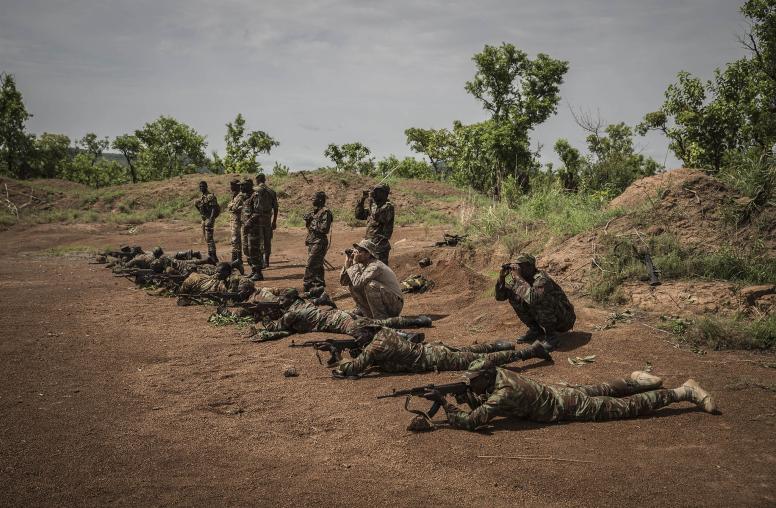Dialogue is a powerful instrument for creating understanding between groups who are in conflict with one another. Unlike debates or decision-making processes dialogues are open ended—their purpose is not to “win” or make decisions, but rather to allow people to deepen their understanding of a particular issue and to form relationships between people that may transform how they think about each other and how they can engage with people different from them.

[About this series: The role of women in countering and preventing violent extremism is getting increasing attention worldwide, but a coherent international framework is still needed. To encourage this conversation and process, USIP is launching a guide, “Charting a New Course,” containing essays and exercises to help practitioners discuss the role of gender in countering violent extremism. Copies will be distributed at a March 6 discussion, Women Preventing Violent Extremism: Charting a New Course, and the guide will be available online at a later date. The related projects, Women Preventing Extremist Violence (WPEV) and the Sisters Against Violent Extremism Mother Schools (SAVE), have been funded by the U.S. Department of State. Three of the essays in “Charting a New Course” were contributed by USIP experts Alison Milofsky, Georgia Holmer and Nancy Payne and appear here on The Olive Branch this week.]
Dialogue comes from the Greek dialogos. Dia translates to “through” and logos means “word” or “speech” (Online Etymology dictionary). Dialogue is a process of increasing understanding through words. In conflict situations, communication is often difficult. People tend to become entrenched in their positions, sticking firmly to what they believe and often trying to persuade others that they are correct.
The latter approach to communication leans toward debate rather than dialogue. When conversations move in this direction, the search for greater understanding is often lost. “Why seek new understanding when I know I am right?” one might argue.
Dialogue is an alternative way of communication. As a listener, I seek greater understanding in dialogue because I recognize that not all situations have one right answer. I open myself to other possibilities. I ask questions to gain a better understanding of what forms another person’s perspective rather than to dismantle their argument.
Dialogues also open up new ways of thinking about an issue. Dialogue invites people to think about and envision what they have not previously considered.
Women and women’s organizations active in trying to prevent violent extremism can use dialogue as a way to bring communities together and bridge differences. They can also use dialogue to encourage constructive listening and to speak with individuals or groups of people prone to radicalization.
A dialogic approach invites the listener to keep an open mind, to be mindful of their assumptions and cognizant when those assumptions are being challenged. It involves asking open-ended questions that are intended to deepen understanding rather than create defensiveness on the part of the speaker. It is an approach rooted in positive intent.
A dialogic approach to listening requires certain skills. It may necessitate unlearning some very basic practices that are firmly rooted in years of schooling around debating ideas, writing persuasive essays, and defending theses, all of which have their place in society.
If women and women’s organizations want to engage those sensitive to violent extremist messages or engage with agents of the security sector they must first learn how to listen without judgment, how to develop an awareness of assumptions of the “other,” and how to focus on experiences rather than ideas.
When engaged in dialogue, “Why do you think that?” becomes “What experiences have you had that might help me understand your perspective?” Such simple reframing of questions can be learned, but a willingness to engage from a place of good will must come from within.



